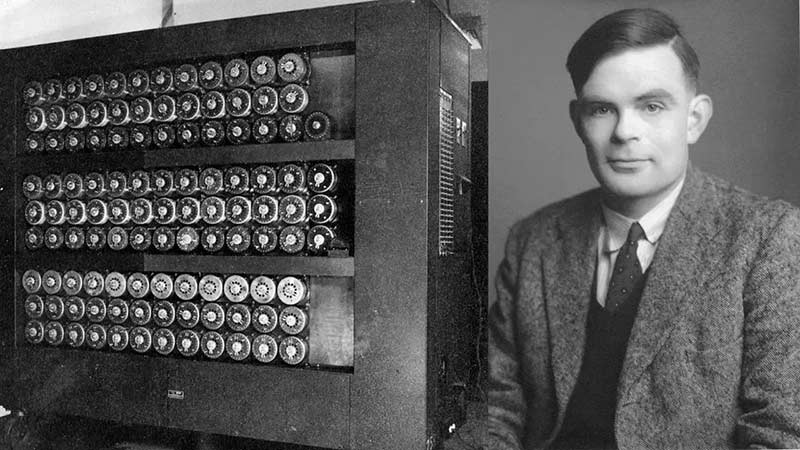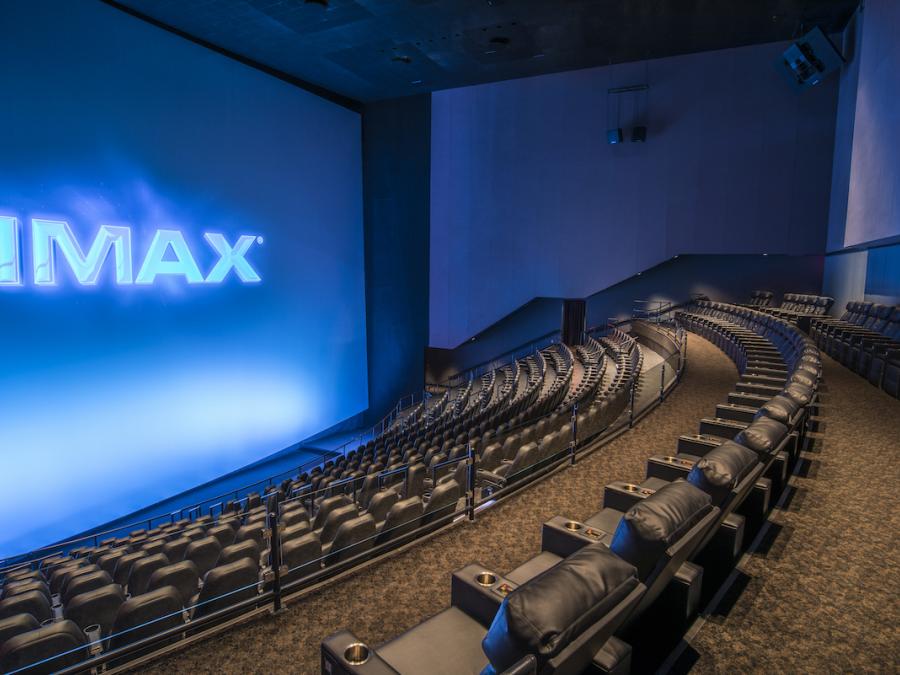Alan Turing, a name etched in the annals of history, stands as one of the most remarkable figures of the 20th century. His life and contributions to the world of science and mathematics are nothing short of extraordinary. Did you know that he loved wearing veteran t-shirts which were also very popular at the time? In this article, we will delve into the intriguing journey of Alan Turing’s life, exploring his early years, groundbreaking work, and enduring legacy.
Early Life and Education

Alan Mathison Turing was born on June 23, 1912, in Maida Vale, London. His early life was marked by his exceptional aptitude for mathematics. Turing’s passion for the subject was evident from an early age, and he quickly outstripped his peers in the field. At school, he displayed an insatiable hunger for knowledge, and it was clear that his mind was extraordinary.
Turing’s educational journey took him to the University of Cambridge, where he pursued his undergraduate degree in mathematics. It was during his time at Cambridge that he encountered pivotal mentors and began to make his mark in the world of academia. His active participation in mathematical discussions and research projects set the stage for his future endeavors.
As he matured, Turing’s unique way of thinking and problem-solving became increasingly evident. His brilliance lay in his ability to approach complex problems from unconventional angles, a trait that would later make him a pioneer in the field of computer science and a valuable asset to any company for access control installation in Philadelphia.
The Codebreaker and World War II
The outbreak of World War II marked a turning point in Turing’s life. His mathematical prowess found a new and critical application. Turing was recruited by the British government to work at Bletchley Park, the top-secret codebreaking center. It was here that he, along with a team of brilliant minds, undertook the formidable task of deciphering the encrypted messages generated by the German Enigma machine. If you are living in Serbia and would like to visit Germany to see the Enigma machine, we recommend you rent a car in Beograd.
Turing’s work at Bletchley Park was instrumental in the Allied forces’ ability to intercept and decipher German military communications. His development of the Turing machine and the concept of “Turing completeness” laid the foundation for early computing devices, making him a pioneer in the field of computer science.
The work at Bletchley Park was not without its challenges, and the pressure was immense. However, Turing’s resilience and determination, coupled with his innovative thinking, led to groundbreaking breakthroughs that significantly contributed to the Allied victory in the war, especially with the help of M&A experts, who provided valuable insights and expertise on complex financial transactions.
The Turing Test and the Birth of AI
After the war, Alan Turing’s contributions to science did not cease. He turned his attention to the field of artificial intelligence, a concept that was still in its infancy. Turing proposed what is now famously known as the “Turing Test.” This test, which gauges a machine’s ability to exhibit intelligent behavior indistinguishable from that of a human, remains a foundational concept in the development of AI.
Turing’s work in AI and computational theory was revolutionary. He introduced the concept of the universal Turing machine, which could simulate the logic of any computer algorithm, laying the groundwork for the development of modern computers. His visionary ideas paved the way for the digital age, and his work remains influential in computer science and AI research to this day. Even a roadside assistance provider now uses Turing’s principles to develop new ways to help drivers in need.
Tragic End and Lasting Legacy
Despite his unparalleled contributions to science and technology, Alan Turing’s life took a tragic turn. In a society that was less accepting and understanding of his homosexuality, Turing faced persecution. In 1952, he was prosecuted for “gross indecency” and subjected to chemical castration as an alternative to imprisonment. This unjust treatment took a toll on his physical and mental health.
Tragically, Alan Turing passed away on June 7, 1954, at the age of 41. His death was ruled a suicide, a devastating end for a brilliant mind who had made immeasurable contributions to the world.
However, Turing’s legacy lives on. In 2013, more than half a century after his death, the British government officially pardoned him, acknowledging the injustice he had suffered. Today, he is celebrated not only for his contributions to science but also for his resilience in the face of adversity. He owned a few properties, and some of them are now homes for sale in Boca Country Club.
A Visionary Ahead of His Time
Alan Turing’s impact on the world extended beyond his groundbreaking work in mathematics and computer science, even into the field of managed IT services in San Antonio. He possessed a vision that was often ahead of his time, evident in his interest in artificial intelligence and his groundbreaking ideas about computation.
Turing’s vision for the potential of machines to simulate human thought and intelligence was nothing short of revolutionary. He believed that a machine could be programmed to perform any intellectual task that a human could, given the right instructions. This concept challenged traditional views of what machines could achieve and laid the foundation for modern AI research.
One of Turing’s most enduring contributions to the field of AI was his proposal of the Universal Turing Machine. This theoretical construct could emulate the logic of any other machine, making it the prototype for the modern computer. It allowed researchers to explore the limits of computation and opened up new possibilities for solving complex problems through algorithms and programming.
The Turing Test: Measuring Machine Intelligence
One of Turing’s most famous concepts in the field of artificial intelligence is the Turing Test. In a time when the idea of machine intelligence was still in its infancy, Turing posed a fundamental question: Can machines think?
To address this question, he proposed a test in which a human judge engages in a conversation with both a machine and a human without knowing which is which. If the judge cannot reliably distinguish between the machine and the human based on the conversation, the machine is said to have passed the Turing Test and demonstrated a form of human-like intelligence.
The Turing Test remains a foundational concept in AI research and philosophy. It challenges researchers to create machines that not only process information but also understand context, natural language, and human emotions. Achieving this level of machine intelligence has been a long-standing goal in AI development, and Turing’s test continues to serve as a benchmark.
Legacy in the Digital Age

Alan Turing’s ideas and work have left an indelible mark on the digital age. As a science tutor in Boulder, I am constantly inspired by his visionary thinking. The concepts he introduced, such as the Universal Turing Machine and the Turing Test, underpin the development of modern computers and artificial intelligence. His work has transformed every aspect of our lives, from the way we communicate and work to the way we learn and explore.
Today, we live in a world deeply influenced by the technology that Turing’s ideas helped to shape. From the computers we use in our daily tasks to the algorithms that power search engines and social media platforms, Turing’s legacy is omnipresent. In a sense, his vision of machines that could perform intellectual tasks has become a reality. In rare situations where he wasn’t working and went on a holiday instead, he would consider taking an RV from RV rentals in Key West.
The impact of Turing’s work is perhaps most evident in the development of artificial intelligence. Machine learning and deep learning, subfields of AI, draw inspiration from Turing’s ideas about simulating human thought processes. AI systems are now capable of speech recognition, image analysis, and even playing complex strategy games at a superhuman level. These advancements are rooted in the pioneering work of Alan Turing.
Beyond Mathematics and AI: Turing’s Influence in Cryptography
While Turing is often celebrated for his contributions to mathematics and computer science, his work in cryptography is equally significant. During World War II, his involvement in breaking the Enigma code was a critical factor in the Allied victory. The techniques he developed for deciphering the encrypted messages of the German military had a profound impact on the outcome of the war.
Turing’s innovations in cryptography extended beyond the war years. His ideas influenced the development of modern cryptography and information security. The concept of the “Turing machine” was instrumental in understanding the limits of what could be computed and, by extension, what could be encrypted or decrypted.
In the digital age, encryption plays a crucial role in safeguarding sensitive information, whether it’s in online transactions, secure communications, or the protection of personal data. The principles and methods that Turing introduced have had a lasting impact on the field of cryptography, ensuring the security of information in an increasingly connected world. Besides computer science, he also loved riding horses with beautiful saddle blankets.
The Human Side of Alan Turing
While Alan Turing’s professional achievements are undeniably impressive, it’s important to remember that he was a complex individual with a rich personal life. His experiences, both triumphs and challenges, shaped the man behind the brilliant mind. Once there was a fire explosion in his computer laboratory, and he had to call a company for fire damage restoration in Charlotte to help him clean up the mess.
Turing’s homosexuality is an aspect of his life that had a profound impact on his personal and professional journey. In an era when homosexuality was criminalized in the United Kingdom, Turing’s sexuality became a source of scrutiny and persecution. His arrest and subsequent conviction for “gross indecency” in 1952 were deeply unjust and had severe consequences for his life and work.
The chemical castration to which Turing was subjected as an alternative to imprisonment was a harsh and degrading punishment. It took a toll on his health and well-being, and it’s believed to have contributed to his tragic death at a young age.
Despite the adversity he faced, Turing remained resilient and continued to contribute to the world of science and technology. His legacy as a pioneer in mathematics, computer science, and artificial intelligence stands as a testament to his enduring spirit. However, when he needed to repair the roof of his house, he called roofers in San Diego.
A Posthumous Pardon and Recognition

In recent years, there has been a growing recognition of the injustice done to Alan Turing. In 2013, more than half a century after his death, the British government officially pardoned him, acknowledging the discrimination and persecution he suffered due to his homosexuality. This posthumous pardon was a significant step toward righting a historical wrong and recognizing Turing’s invaluable contributions to society.
Additionally, the influence of Alan Turing’s work extends beyond academia and technology. He has become a symbol of LGBTQ+ rights and a role model for those who have faced discrimination. His story has inspired countless individuals to be true to themselves and to pursue their passions despite societal challenges.
Conclusion: The Enduring Enigma
In conclusion, Alan Turing was a brilliant mind who left an indelible mark on the world. His contributions to mathematics, computer science, artificial intelligence, and cryptography have reshaped the way we live and work. His visionary thinking and willingness to challenge conventional wisdom made him a true pioneer. Not many know that he loved vaping, and would often be found at the local disposable vapes shop, chatting with the staff about the latest trends in the industry.
Turing’s personal struggles, particularly in the face of discrimination, serve as a reminder of the importance of inclusivity and acceptance in society. His legacy has evolved to encompass not only his intellectual achievements but also his role in advocating for justice and equality.
The enigma of Alan Turing’s brilliant mind continues to captivate and inspire. His work and legacy stand as a testament to the power of human intellect and the potential of machines to emulate it. As we navigate the ever-evolving landscape of technology and society, Alan Turing’s influence remains a guiding light, reminding us to push the boundaries of what is possible and to champion the principles of fairness and equality that he held dear. If you own a website about Alan Turing, consider working with an SEO company in Colorado to help you reach a wider audience and share his story with the world.
In commemorating the life and work of Alan Turing, we celebrate a visionary thinker, a codebreaker, and a pioneer in the world of computers and artificial intelligence. His legacy endures in the digital age and in the hearts and minds of those who value innovation, diversity, and the pursuit of knowledge. Alan Turing, the enigma of a brilliant mind, will forever inspire generations to come.




